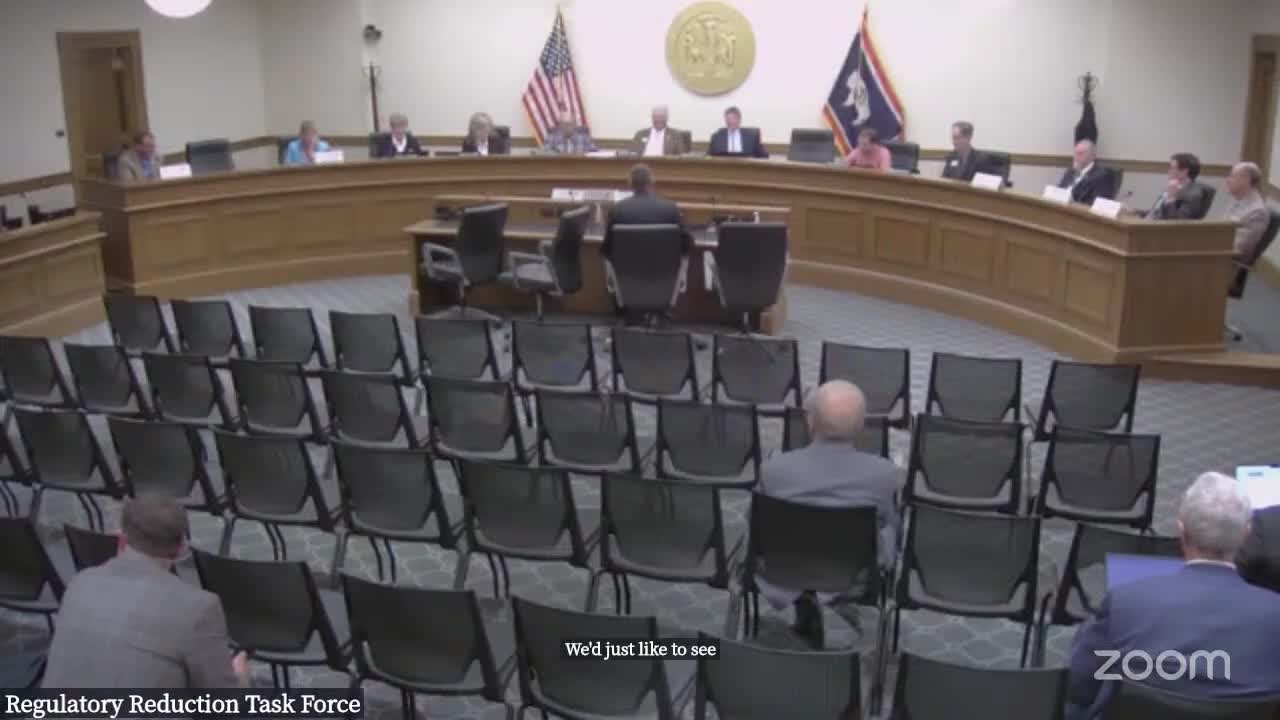State lands office outlines oil and gas leasing practices, revenue and staffing plans
Get AI-powered insights, summaries, and transcripts
Subscribe
Summary
The Office of State Lands and Investments told the task force it seeks to streamline leasing processes, is recruiting commercial‑leasing staff, and noted oil and gas generated roughly $121 million for trust beneficiaries in fiscal year 2024.
Cheyenne — Jason Crowder, interim director of the Office of State Lands and Investments (OSLI), briefed the Regulatory Reduction Task Force on state land leasing for oil and gas and described administrative steps the agency is taking to make leasing and long‑term management more efficient.
Crowder emphasized oil and gas remains the dominant revenue source for the state trust portfolio in recent years and that securing predictable, orderly development is an OSLI priority. “Oil and gas brought in a $121,000,000 at fiscal year 24, which is 70% of the whole revenue stream brought in from that from our office,” Crowder told the task force.
Key points
- Staffing and processing: Crowder said the office requested and received additional positions to manage commercial leasing and is recruiting a new entry‑level staffer to support an expanded commercial‑leasing team. The team approach is intended to reduce single‑person institutional‑knowledge risk and speed application processing. - Auction nominations: OSLI places industry‑nominated parcels on state lease auctions and treats nominations as high priority; Crowder said the number of nominated parcels has fallen and that the office is monitoring the trend. The office does not require pre‑lease NEPA‑style analysis the way federal agencies do; environmental and regulatory review proceeds through agencies such as DEQ and the Oil and Gas Conservation Commission after a lease is issued. - Modernization: OSLI is moving to online auctions and online payment capabilities to reduce the need for in‑person bidding and to streamline payments for grazing, easements and other commercial uses. - Minerals and new technologies: Crowder said the board has sought stronger surface‑management and reclamation plans before leasing for emerging minerals such as lithium; the board wants detailed proposals for how surface impacts will be handled before offering leases for new‑technology extraction.
Legal and tax developments
Crowder addressed a recent state supreme court decision about taxation of state‑leased land uses, describing the ruling as new and still being analyzed for its fiscal impact. “We’re still trying to determine what the impacts are,” he said, noting the decision may affect lessees and how any property tax liabilities are treated in lease contracts.
Ending: Crowder said the office will continue to pursue online auction and payment tools, will prioritize nominated parcels for upcoming auctions and asked the task force to recognize that OSLI’s constitutional mandate is revenue generation for trust beneficiaries even as the agency works to be more applicant‑friendly.
